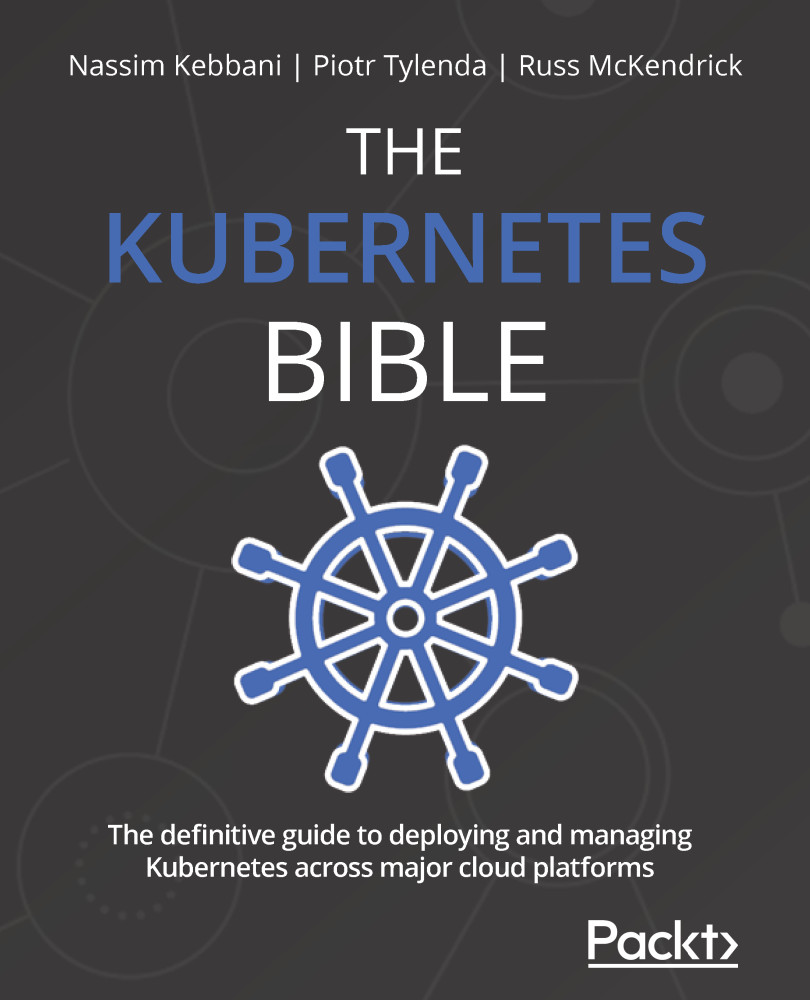Chapter 1: Kubernetes Fundamentals
Welcome to The Kubernetes Bible. This is the first chapter of this book, and I'm happy to accompany you on your journey with Kubernetes. If you are working in the software development industry, you have probably heard about Kubernetes. This is normal because the popularity of Kubernetes has grown a lot in recent years.
Built by Google, Kubernetes is the leading container orchestrator solution in terms of popularity and adoption: it's the tool you need if you are looking for a solution to manage containerized applications in production at scale, whether it's on-premises or on a public cloud. Be focused on the word. Deploying and managing containers at scale is extremely difficult because, by default, container engines such as Docker do not provide any way on their own to maintain the availability and scalability of containers at scale.
Kubernetes first emerged as a Google project, and they put a lot of effort into building a solution to deploy a huge number of containers on their massively distributed infrastructure. By adopting Kubernetes as part of your stack, you'll get an open source platform that was built by one of the biggest companies on the internet, with the most critical needs in terms of stability.
Although Kubernetes can be used with a lot of different container runtimes, this book is going to focus on the Kubernetes + Docker combination.
Perhaps you are already using Docker on a daily basis, but the world of container orchestration might be completely unknown to you. It is even possible that you do not even see the benefits of using such technology because everything looks fine to you with just raw Docker. That's why, in this first chapter, we're not going to look at Kubernetes in detail. Instead, we will focus on explaining what Kubernetes is and how it can help you to manage your Docker containers in production. It will be easier for you to learn a new technology if you already understand why it was built.
In this chapter, we're going to cover the following main topics:
- Understanding monoliths and microservices
- Understanding containers and Docker
- What is Kubernetes?
- How can Kubernetes help you to manage Docker containers?
- What problem does Kubernetes solve?
- Understanding the story of Kubernetes
































































